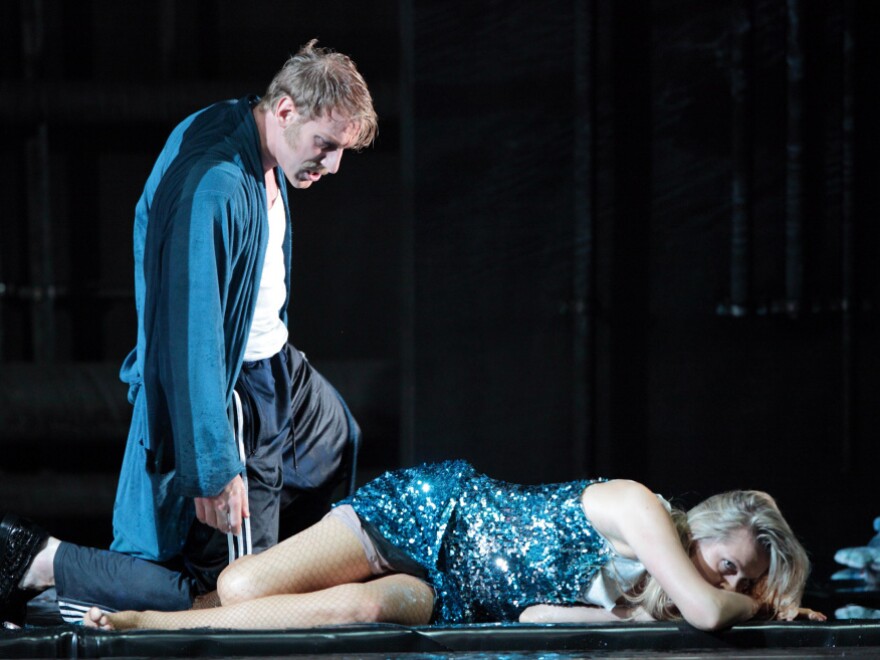When novelist J. R. R. Tolkien's trilogy The Lord of the Rings became a trio of blockbuster movies, the films added an element to the plot line that Tolkien basically ignored: romance.
Composer Antonin Dvorak surely would have approved that addition; his opera Rusalka tells a similar romantic story and even takes it a few steps further.
Fans of The Lord of the Rings will recall that, in the movies, a beautiful elf named Arwen falls in love with one of the story's heroes, Aragorn. But there's a catch — a big one. As an elf, Arwen is immortal, while the very human Aragorn is not. For the two to be together, Arwen must sacrifice her own immortality. She does, and love wins out in the end. It doesn't get much more romantic than that.
But imagine for a moment that the love story doesn't work out. Let's say Arwen leaves her immortality behind, only to have Aragorn fall for another woman! Could a story like that possibly have a romantic ending? In Dvorak's opera, the answer is yes.
The title character of Rusalka is a water nymph. Like Tolkien's Arwen, she's immortal, and she falls in love with a mortal man — a prince who finds himself repeatedly drawn to the quiet lake where Rusalka lives. Also like Arwen, Rusalka decides to give up her immortality to pursue true love. Unlike Aragorn, however, the prince is no hero. He dumps Rusalka, leaving her to a hellish life of eternal solitude.
Of course, there's much more to the story — the truly romantic part. The prince realizes his mistake, seeks Rusalka out, and willingly makes his own, ultimate sacrifice, to restore her immortality.
The opera's libretto is based on two, well-known sources: Friederich Fouque's novel Undine and Hans Christian Andersen's The Little Mermaid. But Dvorak truly makes the story his own. The score features some of his finest and most evocative music, giving the entire opera the dreamy feel of a fairy tale, but with an ominous undercurrent that makes the drama's transcendent ending all the more rewarding.
On World of Opera, host Lisa Simeone presents Rusalka in a production from the Bavarian State Opera in Munich. Soprano Kristine Opolais sings the title role, with tenor Klaus Florian Vogt as the prince.
See the previous edition of World of Opera or the full archive.
Copyright 2011 WDAV

